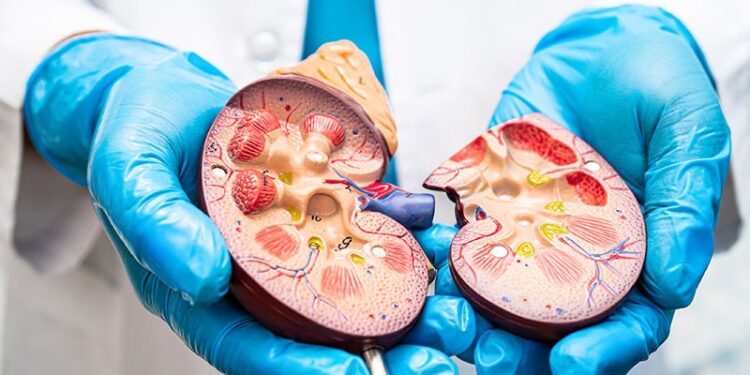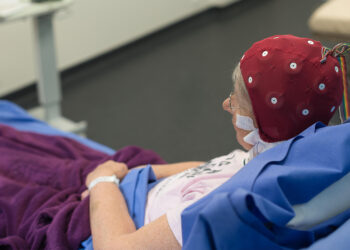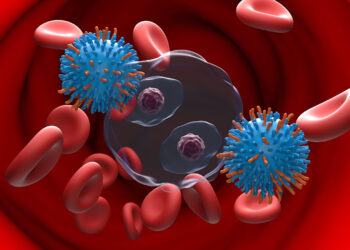TOPLINE:
Compared with standard care, an 8-week supervised prehabilitation programme led to a significant improvement in exercise capacity, handgrip strength, and rectus femoris muscle thickness among kidney transplant candidates, even among those who were frail.
METHODOLOGY:
- Researchers conducted a preliminary analysis of a subset within the FRAILMar study to evaluate whether an exercise-based prehabilitation programme improves exercise capacity, muscle function, and frailty status among kidney transplant candidates.
- They included 121 adult kidney transplant candidates (mean age, 63.4 years; 24% women) who were randomly assigned to either receive standard care (the control group) or follow an 8-week prehabilitation programme comprising 24 supervised 1-hour sessions of aerobic, strength, and inspiratory muscle training with tailored nutritional supplementation (the intervention group); randomisation was stratified on the basis of frailty status.
- Exercise sessions included a 5-minute warm-up, 20 minutes of continuous cycling at 60% of peak workload, strength training for upper and lower limbs, inspiratory muscle training, and a 5-minute cool-down.
- The primary outcome was the change in exercise capacity, assessed through maximal workload during a cardiopulmonary exercise test. Secondary outcomes included peripheral and respiratory muscle function, muscle size, and changes in frailty status.
TAKEAWAY:
- Compared with the control group, the intervention group showed a significant improvement in exercise capacity (mean difference [MD] in maximal workload during the cardiopulmonary exercise test, +12.8 watts; P = .008).
- Handgrip strength (MD, +1.8 kg; P < .001) and rectus femoris muscle thickness (MD, +1.2 mm; P = .007) were also increased significantly in the intervention group.
- Overall, 55% of frail patients in the intervention group vs 45% of those in the control group transitioned from frail to robust status; none of the patients transitioned from robust to frail status in the intervention group.
- At 6 months of follow-up, some improvements were lost, suggesting that patients may lose improvements once the intervention ends. No significant adverse events related to exercise were reported.
IN PRACTICE:
“Our findings indicate that physical conditioning can be improved through physical training in advanced CKD [chronic kidney disease] patients, and this benefit extends to frail individuals as well. While not yet proven, improvements in the functional status of kidney transplant candidates may lead to better transplant outcomes, as poorer functional status in recipients is associated with worse transplant results,” the authors wrote.
SOURCE:
This study was led by María José Pérez-Sáez, MD, PhD, Hospital del Mar, Barcelona, Spain. It was published online on August 13, 2025, in the American Journal of Kidney Diseases.
LIMITATIONS:
Inherent limitations of exercise-based interventions, such as the inability to blind researchers or participants, may have influenced the results. The short-term follow-up limited the assessment of long-term intervention effects, particularly in frail patients. Additionally, informative dropout may have introduced bias, and no approaches to address missing data were implemented in the analysis.
DISCLOSURES:
The FRAILMar study was supported by a grant from Instituto de Salud Carlos III. The authors reported having no relevant conflicts of interest.
This article was created using several editorial tools, including AI, as part of the process. Human editors reviewed this content before publication.
Source link : https://www.medscape.com/viewarticle/exercise-boosts-fitness-kidney-transplant-candidates-2025a1000lv9?src=rss
Author :
Publish date : 2025-08-21 12:00:00
Copyright for syndicated content belongs to the linked Source.














